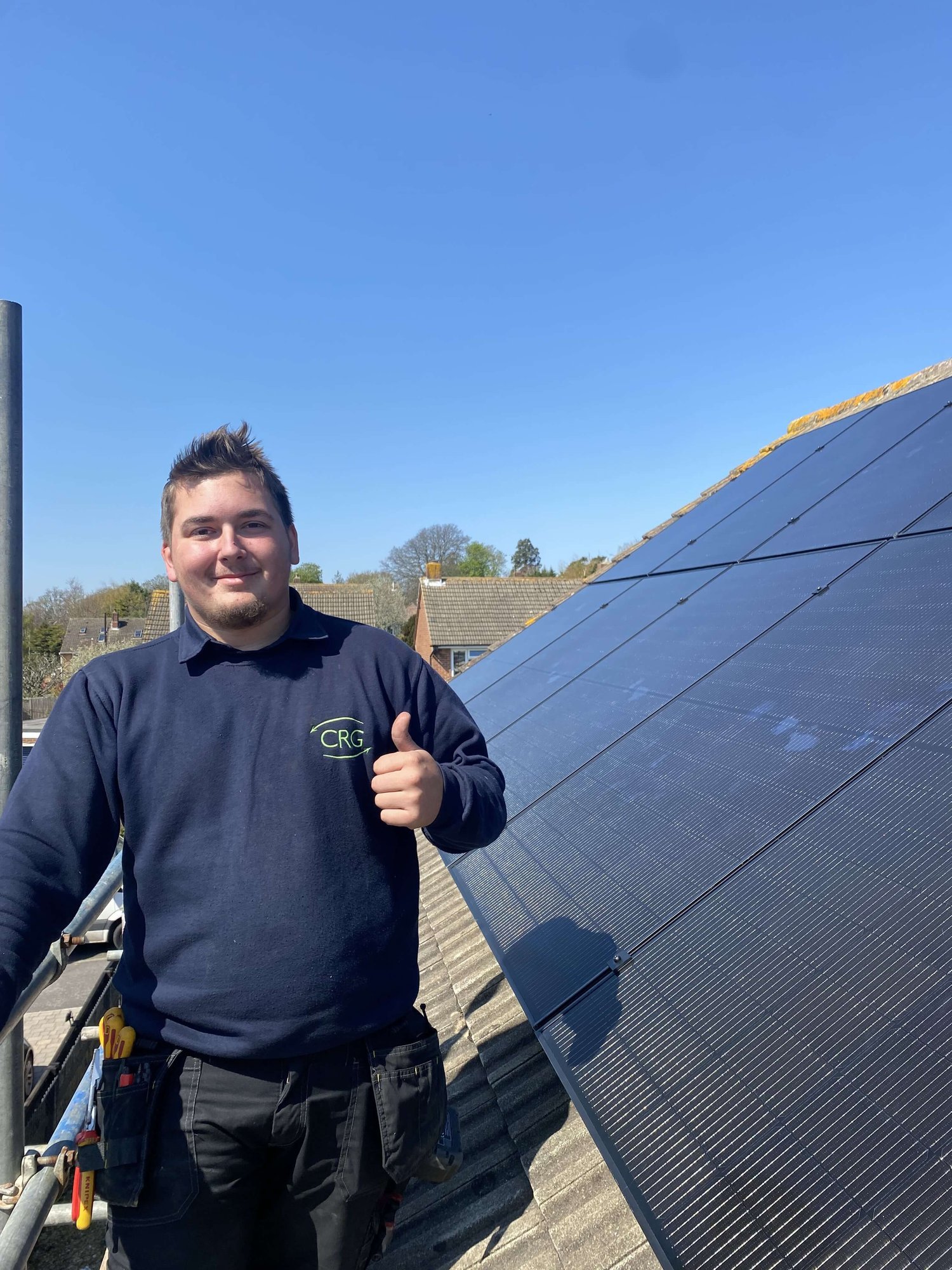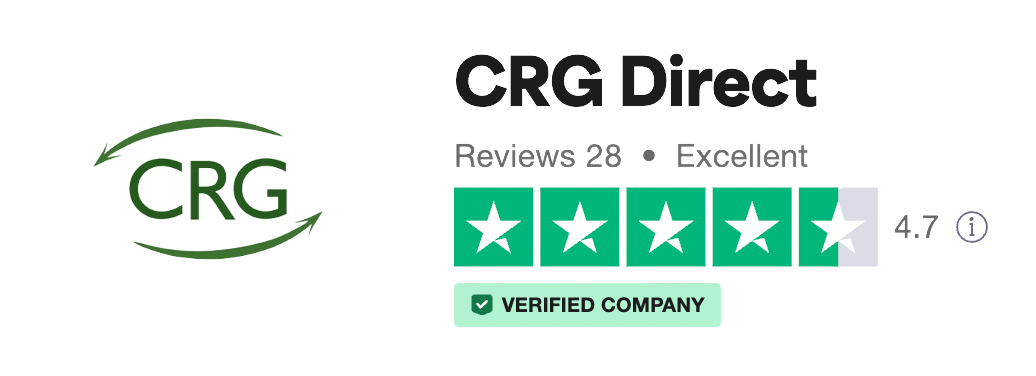How Do Solar Panels Work in the UK?
Discover how solar panels work in the UK, generating electricity from sunlight while reducing your electric bill.
Are you curious about how solar panels work in the UK? Solar power technology allows us to harness the sun's energy to produce electricity. Solar panels generate electricity through photovoltaic (PV) cells, which convert sunlight into usable electricity in a process known as the photovoltaic effect. By installing solar panels on your home, you can create your own electricity supply, significantly lowering your electricity bills and contributing to a greener planet by reducing your carbon footprint.
Why Solar Panels are Growing in Popularity in the UK
In recent years, renewable energy has seen a surge in popularity as climate change and rising energy costs drive a shift from fossil fuels to sustainable options. Solar energy systems, in particular, have become a common sight on UK rooftops. Solar panels generate clean electricity by capturing sunlight, offering households the chance to not only reduce their energy bills but also participate in lowering the national carbon footprint. Let’s dive deeper into how solar panels work, what makes them cost-effective, and the key benefits they bring.
How Do Solar Panels Work?
Solar panels consist of multiple solar photovoltaic (PV) cells, which are responsible for generating electricity from sunlight. These solar cells are typically made of silicon and have positive and negative layers that create an electric field. Here’s a simple breakdown:
Sunlight Hits the PV Cells: When direct sunlight hits the surface of these PV cells, it energizes electrons, causing them to move and create an electric current.
DC to AC Conversion: The generated electricity is in the form of direct current (DC), but household appliances use alternating current (AC). An inverter, or a central inverter in larger systems, converts the DC electricity into AC electricity so it can power your home.
Electricity Produced Powers Your Home: The usable electricity produced by solar panels is directed into your home’s electrical circuit, powering household appliances and reducing the electricity you need to buy from the grid.
Think of it as a solar trampoline – sunlight bounces onto the panels, and the energy from this movement creates usable electricity.
How Do Solar Panels Impact Your Electricity Bill in the UK?
Solar panels can reduce your electricity bills by up to 90% depending on factors like system size, daily energy consumption, and available sunlight. At CRG Direct Solar, customers typically report savings of 70-80% on their energy bills after solar panel installation.
Instead of purchasing electricity from an energy supplier at market rates, you can rely on your solar power system. Excess electricity generated by the panels can either be stored in solar batteries or exported back to the national grid through the SEG (Smart Export Guarantee) scheme, where you receive payment for the energy supplied. This surplus electricity further enhances your savings, especially in peak sunlight months.
Key Factors Influencing Energy Production and Savings
Solar energy systems work best in direct sunlight, so cloud cover can impact energy production. Even so, solar power technology has advanced to function well in varied weather, so even in the UK’s sometimes overcast conditions, panels can produce enough energy to cut bills significantly. Here are a few factors that affect how much electricity your panels can generate:
Size of the Solar Array: The larger the array (the number of PV panels), the more energy the system can produce.
Battery Storage: With solar batteries, you can store excess solar energy produced during the day and use it during the night, increasing savings and reducing grid dependency.
Seasonal and Daily Light Variations: Winter months and nighttime require a grid connection as there’s less sunlight. But with good planning, a solar system can cover most daytime needs.
Do Solar Panels Store Energy?
Solar panels themselves do not store energy; they only generate electricity when sunlight is available. To use stored energy, you’ll need solar batteries as part of your solar system. These batteries collect and store excess electricity produced by the solar panels, making it available for use when sunlight isn’t available, such as at night or during cloudy weather.
Other Renewable Technologies and How Solar Complements Them
Solar photovoltaic systems can work alongside other renewable technologies, like wind or concentrated solar power, creating a diversified energy strategy for both homeowners and the national grid. By combining various renewable energy sources, households can optimize energy production, reduce reliance on fossil fuels, and increase resilience against fluctuating energy bills.
How Much Does a Solar Panel System Cost?
The cost of a solar panel installation varies depending on factors like the size of the system, the number of panels required, and any additional features, such as solar batteries or inverters. While initial setup costs may seem high, the return on investment is compelling. Most households recoup their solar panel costs within several years thanks to significant electricity bill savings and incentives from the Smart Export Guarantee.
For a customized cost analysis, try out our free solar panel cost calculator. It provides a quick estimate of installation costs, potential savings, and how many solar panels would be optimal for your energy needs.
Environmental Benefits of Solar Power
Solar panels not only help reduce household electricity bills but also contribute to a sustainable future. By generating electricity through solar technology, you reduce greenhouse gas emissions and dependence on fossil fuels, positively impacting the environment.
In summary, installing a solar panel system in the UK allows you to harness the sun’s energy to produce clean, renewable electricity for your home. Solar panels generate substantial electricity savings, minimize reliance on the grid, and reduce carbon emissions. With advances in solar technology and energy storage, solar PV panels continue to be a top choice for sustainable and cost-effective energy solutions in the UK.
Understanding How Solar Panels Work: From Sunlight to Electricity
Solar panels work by capturing sunlight and transforming it into usable electricity. Each panel consists of photovoltaic cells, commonly known as solar cells, which generate electricity through the photovoltaic effect. Let’s break down the steps of how these panels work and produce energy.
Sunlight Strikes the Photovoltaic Cells: When sunlight hits photovoltaic cells, it creates an electric field across the positive and negative sides of each cell. This electric field causes electrons to flow, creating direct current (DC) electricity.
Conversion to Alternating Current (AC): The electricity produced by the solar cells is in DC form, which needs conversion to alternating current (AC) to power household appliances. A solar inverter is essential in every solar PV system to perform this conversion.
Electrical Current for Household Use: The AC electricity flows through the home’s electrical circuit, powering devices, appliances, and lighting. Any excess electricity produced by the solar array (multiple solar panels) can either be stored in a battery system or exported to the electric grid.
Types of Solar Energy Systems: PV and Solar Thermal
There are two main types of solar energy systems: photovoltaic (PV) solar panels and solar thermal systems.
Photovoltaic Solar Panels (PV): PV panels are the most common form of solar energy systems, directly converting sunlight into electricity. These are the types of panels typically seen on residential rooftops, using photovoltaic cells to generate solar energy.
Solar Thermal Systems: Rather than generating electricity, solar thermal systems use sunlight to produce heat. They’re often used to heat water for home or industrial use, reducing the need for traditional gas or electric heating systems.
Energy Production and Efficiency of Solar PV Systems
The energy production capacity of a solar PV system depends on several factors:
Size of the Solar Array: The more panels you have, the more electricity the system can produce. Larger arrays of multiple solar panels can generate more electricity, which can lower electricity bills even further.
Sunlight and Weather Conditions: Solar energy generation is most effective in direct sunlight, so geographic location and seasonal cloud cover impact the electricity produced.
Efficiency of Photovoltaic Cells: Advances in solar power technology mean that newer photovoltaic cells have become more efficient, producing more electricity from the same amount of sunlight.
Solar panels can offset a significant amount of fossil fuel-based energy, helping to reduce carbon emissions.
How Much Do Solar Panels Cost?
The cost of solar panels varies based on the size and type of system, the number of solar cells needed, and additional features like battery storage or energy monitoring. While upfront costs can be high, solar systems provide long-term savings on electricity bills and can pay for themselves over time. The ability to sell excess electricity to the grid also contributes to cost savings.
The Science Behind Solar Cells and Electric Fields
Solar cells are constructed with silicon layers that create an electric field due to the positive and negative sides of the material. When sunlight strikes these photovoltaic cells, it energizes electrons, initiating an electrons flow across the cell. This movement of electrons generates DC electricity, which the inverter later converts to AC.
Solar Panels and the Impact on the Electric Grid
By generating electricity, solar panels can decrease demand on the electric grid, especially when excess electricity is exported. When solar panels produce more energy than a household needs, this surplus flows back to the grid, allowing other users to benefit and reducing the need to buy energy.
Key Steps to Install Solar Panels
For homeowners considering solar, here’s a step-by-step overview:
Assess Energy Needs: Determine how much electricity your household uses, which will guide the solar array size.
Choose the Right Solar System: Opt for a system that suits your energy consumption and budget. Consider if you want additional features, like a battery for storage.
Install Solar Panels: The installation team places panels in optimal locations on your roof to capture as much sunlight as possible.
Connect to the Inverter and Electrical Circuit: This step enables the conversion from DC to AC electricity, making it usable for appliances.
Activate and Monitor the System: After installation, the system is connected to the electricity grid, and you can monitor energy and savings.
Benefits of Solar Energy Production
Investing in solar technology offers multiple benefits:
Lower Bills: By generating more energy from your solar array, you rely less on grid-supplied power.
Reduced Co2: PV systems produce clean energy, reducing greenhouse gas emissions.
With technological advancements, solar panels have become a highly efficient and sustainable solution for meeting household energy needs while helping the environment.
Try our estimate calculator
Get an idea of what system might suit your home and what your approximate cost of a solar system would be.
Get panels installed in just 4 weeks
MCS Accredited
Save up to 80% on your bills
Get a free instant solar panel estimate
How does this work?
One of our team members will call or email you — We’ll ask about your energy needs and roof space — We’ll give you a free no obligation personalised quote.
Read our great reviews on Trustpilot
Dave Wood
“We had a great experience with CRG…”
“We had a great experience with CRG installing our solar panels and battery. Pre-install I had quite a few questions and they were always answered quickly and in an easy to understand way. During the installation the team discovered that it wasn’t going to be as straightforward as they initially thought due to the strange layout of our house and the location of the electrical fuse box etc but they did a great job of working out a route for the cabling that caused the least disruption. Since the install I’ve had another couple of questions about configuring the system and again, I got a quick and helpful response.”
Geoffrey Mellett
“We made a good choice!!”
“After considering a few installers, I decided to ask CRG Direct to install 16 solar panels, an inverter, 2 x batteries and an air conditioning unit. Throughout, the communication was excellent and the scaffolding was erected the day before installation.
The installation day couldn't have gone better, with everyone in the "Team" playing their part leaving us with a very efficient solar installation. I highly recommend CRG well done to you all keep up the good work!!”
Suzie Wilde
“Sound too good to be true? Well it isn't!”
“We researched lots of companies and chose four to visit us and quote. Two twisted our arm to sign up at once: hard selling. Two were left in the running and we hoped CRG's apparent transparency and helpfulness would be matched by the quality of the service. Well - they surpassed it. The quote was fair; the communication at every stage excellent. The fitters were hardworking and electricians a pleasure to have in the house”







